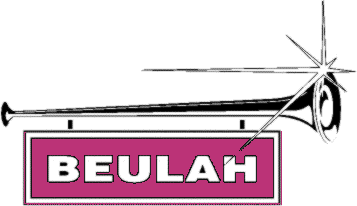|
Over the past 25 years Beulah has
received many
acclaimations.
"The Beulah
record label has always been one of the most idiosyncratic, and
therefore perhaps most interesting, of reissue marques. While the basic
character of Beulah remains the same as in its Compact Disc days, the
range of its present catalogue, driven now by the ease of downloading,
has been extended in remarkable fashion. Browsing the Beulah catalgue
is now rather like being in a 78rpm record shop: there are plenty of
recordings of short pieces available to whet your appetite for either
repertoire or artist, while at the same time there are numerous full
length works available if you wish to consolidate your collection with,
for instance, major symphonies. All of Beulah's transfers, as might be
expected of a distinguished reissue label, are of very high quality."
David Patmore writing in Classical
Recordings Quarterly
|
New for July
Many music lovers miss the sound
from vinyl pressings.
Many others have yet to discover how pleasant the sound can be.
Most of our albums are mastered from vinyl LP pressings and earlier
recordings (before 1953) from 78 rpm discs. It is our ability to
recreate, in the digital age, the sound from the disc era that many of
our customers find most enjoyable.
Unlike modern digital recordings
tracks in our
albums do contain some distortion, and the occasional surface noises,
but for many listeners these "defects" are soon forgotten.
Our albums are available from
many and
streaming sites.
We highly
recommend downloading from
Qobuz where you can download or stream in high quality, for
the
same price as iTunes medium quality.
New albums
What the Critics Say
"The recordings which Thurston Dart made with the
Philomusica of London were in many ways the beginning of modern
practice in performing baroque music. These recordings, recorded with
modern instruments but with a sense of baroque style – Dart’s day job
was as a London University academic – led to the Academy of St
Martin-in-the-Fields with Neville Marriner, still using modern
instruments, and thence to period-instrument practice. So stylish,
indeed, are these performances and so well has the recording come up
that I might well have been fooled in a blind test into thinking this a
recent recording.
"
I imagine that the Water Music will be the main selling point. The
harpsichord suites, though recorded only three years earlier, are a
little less appealing, chiefly because the mono recording, or the
chosen instrument, a Goff from 1952, sounds less clear. The ear soon
adjusts, and I enjoyed this half of the programme, too, but this time
modern practice, though having learned much from Dart, has come a long
way since these recordings were made."
Brian Wilson at MUSICWEB
INTERNATIONAL where you can read the full review
" Beulah’s other June 2018 release, though very
different, is equally
recommendable. Every Time I feel the Spirit contains 28 tracks
sung by Paul
Robeson, mostly recorded at his ‘farewell’ concert in Carnegie Hall in
May
1958. The accompanists are Alan Booth and Harriet Wingreen (piano),
Milt
Okun and his orchestra and, on some tracks, Okun’s chorus. Much of the
music is of a (very) sentimental nature and Robeson misses no
opportunity to
play on this. Occasionally it’s over-slow and overdone – at least for
me – but
tracks like Sometimes I feel like a motherless Child, Get
on
board little Children
and (especially and inimitably) Old Man River amply compensate.
Much of the material is predictable but Christ lag in Todesbanden
(sung in English and German), while it might take J. S. Bach by
surprise and wouldn’t win any prizes for authenticity or German
pronunciation – it’s transposed too low even for Robeson’s dark-toned
voice – makes me wish that he had been coached for and recorded more
such repertoire.
"His rendition of the Schubert Lullaby,
Schlafe holder süsse Knabe (again in somewhat unidiomatic German)
also
suffers from being pitched so low that the voice sounds merely growly.
His Jerusalem is rather more successful and the
Dvořák-inspired Going
Home even more so, despite the banal words. The recordings have
been
well transferred, though the piano tone sounds rather hollow at times
and the applause is sometimes rather abruptly terminated. "
Brian Wilson at MUSICWEB
INTERNATIONAL where you can read the full review
RAF 100
The Royal Air Force
was formed on 1 April 1918. By the
second world war it had massively expanded so in 1941 the Air Ministry
sent a set of records to every RAF station entitled Music
for
Service Occasions.
Read
extensive notes for this album
Beulah at 25
Ballet Music
Here is a 30 minute journey through
some of the ballets featured in Beulah albums. All these tracks can still be
downloaded or streamed.
|
